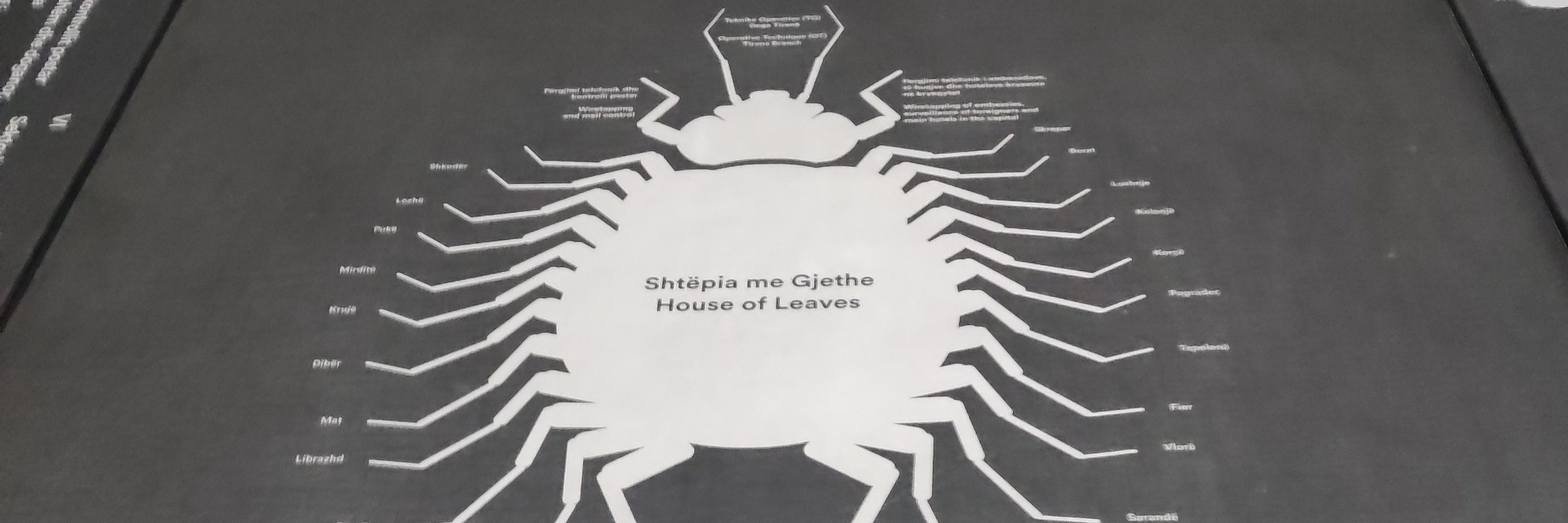
Jonas W. Schmid
@jonaswschmid.bsky.social
Researching autocratic politics, finance ministers & international cooperation at Stockholm University.
Next step is a giant statue of himself on the White House lawn. After that the Washington Monument will be replaced by a giant, rotating statue of "The Art of the Deal".

November 11, 2025 at 11:25 AM
Next step is a giant statue of himself on the White House lawn. After that the Washington Monument will be replaced by a giant, rotating statue of "The Art of the Deal".
More excellent research at the WhoGov workshop with a keynote by @szakonyi.bsky.social, and presentations by @miguelpereira.bsky.social @rsenninger.bsky.social @jbvalgermo.bsky.social @fiva.no @martesaga.bsky.social @haakongjerlw.bsky.social @mnagawa.bsky.social @antonkronborg.bsky.social and more

September 2, 2025 at 10:31 AM
More excellent research at the WhoGov workshop with a keynote by @szakonyi.bsky.social, and presentations by @miguelpereira.bsky.social @rsenninger.bsky.social @jbvalgermo.bsky.social @fiva.no @martesaga.bsky.social @haakongjerlw.bsky.social @mnagawa.bsky.social @antonkronborg.bsky.social and more
Great start to the WhoGov elite workshop with @seibertlukas.bsky.social discussing how transparency affects MPs' side jobs and @siggi-econ.bsky.social showing that Norwegian parties and voters do a good job at filtering out candidates with criminal backgrounds.


September 1, 2025 at 11:28 AM
Great start to the WhoGov elite workshop with @seibertlukas.bsky.social discussing how transparency affects MPs' side jobs and @siggi-econ.bsky.social showing that Norwegian parties and voters do a good job at filtering out candidates with criminal backgrounds.
England's Finest finally reunited😥. Batshit crazy that he made it that long though.

July 22, 2025 at 6:20 PM
England's Finest finally reunited😥. Batshit crazy that he made it that long though.
In our focus groups, we find that, across partisan lines, citizens expected Erdoğan to take responsibility and focus on relief efforts. Attempts to shift blame clashed with these expectations, and were perceived as lacking credibility, opportunist and polarizing, and thus sparked a backlash.⬇️

June 11, 2025 at 3:34 PM
In our focus groups, we find that, across partisan lines, citizens expected Erdoğan to take responsibility and focus on relief efforts. Attempts to shift blame clashed with these expectations, and were perceived as lacking credibility, opportunist and polarizing, and thus sparked a backlash.⬇️
The experiment (n=3,839) shows that blaming the opposition or force majeure led to backlash against Erdoğan, especially among the educated and affluent. ⬇️

June 11, 2025 at 3:34 PM
The experiment (n=3,839) shows that blaming the opposition or force majeure led to backlash against Erdoğan, especially among the educated and affluent. ⬇️
After the devastating earthquakes Erdoğan engaged in blame-shifting in a bid to secure his popularity. We use a survey experiment to identify the effect of blaming the opposition, force majeure, construction companies, and a minister, as well as focus groups to explore the underlying mechanisms. ⬇️

June 11, 2025 at 3:34 PM
After the devastating earthquakes Erdoğan engaged in blame-shifting in a bid to secure his popularity. We use a survey experiment to identify the effect of blaming the opposition, force majeure, construction companies, and a minister, as well as focus groups to explore the underlying mechanisms. ⬇️
After large-scale disasters autocrats often shift the blame on others to save their popularity. Our 🚨new paper🚨, just accepted at Perspectives on Politics, shows that this tactic is prone to backfire. With @edwardgoldring.bsky.social & @fapaydin.bsky.social . shorturl.at/v6wIV%E2%AC%...

June 11, 2025 at 3:34 PM
After large-scale disasters autocrats often shift the blame on others to save their popularity. Our 🚨new paper🚨, just accepted at Perspectives on Politics, shows that this tactic is prone to backfire. With @edwardgoldring.bsky.social & @fapaydin.bsky.social . shorturl.at/v6wIV%E2%AC%...
One consequence of this is that empirical results are often highly inconsistent across different concepts & measures, even though they are often used interchangeably across studies.

April 20, 2025 at 6:15 PM
One consequence of this is that empirical results are often highly inconsistent across different concepts & measures, even though they are often used interchangeably across studies.
Accordingly, there is little empirical agreement between different measures. Their correlations are weaker than those of the democracy measures in the same typologies, and there are almost no cases where all typologies agree on whether or not an observation is a PDA.


April 20, 2025 at 6:14 PM
Accordingly, there is little empirical agreement between different measures. Their correlations are weaker than those of the democracy measures in the same typologies, and there are almost no cases where all typologies agree on whether or not an observation is a PDA.
Worse, even conceptually similar measures can be quite different in the details. E.g., be careful when using Regimes of the World "electoral autocracy" measure! RoW's standard for "multi-party" elections is extremely low, and it classifies many single- and no party regimes as electoral autocracies.

April 20, 2025 at 6:14 PM
Worse, even conceptually similar measures can be quite different in the details. E.g., be careful when using Regimes of the World "electoral autocracy" measure! RoW's standard for "multi-party" elections is extremely low, and it classifies many single- and no party regimes as electoral autocracies.
While all the measures are conceptually related, since they all capture autocracies that incorporates (pseudo-democratic) institutions, the details of what they look at are quite distinct, and they often capture meaningfully different regime types.

April 20, 2025 at 6:13 PM
While all the measures are conceptually related, since they all capture autocracies that incorporates (pseudo-democratic) institutions, the details of what they look at are quite distinct, and they often capture meaningfully different regime types.
To find out, I look at 7 measures of what I label "pseudo-democratic autocracies" (PDA). Spoiler: All the measures I look at are quite distinct, both conceptually and empirically. And that has important consequences for what our ability to aggregate knowledge on such autocracies.

April 20, 2025 at 6:12 PM
To find out, I look at 7 measures of what I label "pseudo-democratic autocracies" (PDA). Spoiler: All the measures I look at are quite distinct, both conceptually and empirically. And that has important consequences for what our ability to aggregate knowledge on such autocracies.
Autocracies increasingly mimic democracies — with parties, elections, even opposition.
We have many of concepts & measures for autocracies that do this, e.g., "hybrid regimes", "electoral autocracies", or "multiparty autocracies", and often use them interchangeably but how similar are they really?
We have many of concepts & measures for autocracies that do this, e.g., "hybrid regimes", "electoral autocracies", or "multiparty autocracies", and often use them interchangeably but how similar are they really?

April 20, 2025 at 6:11 PM
Autocracies increasingly mimic democracies — with parties, elections, even opposition.
We have many of concepts & measures for autocracies that do this, e.g., "hybrid regimes", "electoral autocracies", or "multiparty autocracies", and often use them interchangeably but how similar are they really?
We have many of concepts & measures for autocracies that do this, e.g., "hybrid regimes", "electoral autocracies", or "multiparty autocracies", and often use them interchangeably but how similar are they really?
Or Saparmurat Niyazov, who decided that Turkmenistan only really needed hospitals in the capital in 2004/5, fired thousands of healthcare workers and decided that hospitals outside Ashgabat should close. DOGE before it was cool.

March 28, 2025 at 9:31 PM
Or Saparmurat Niyazov, who decided that Turkmenistan only really needed hospitals in the capital in 2004/5, fired thousands of healthcare workers and decided that hospitals outside Ashgabat should close. DOGE before it was cool.



